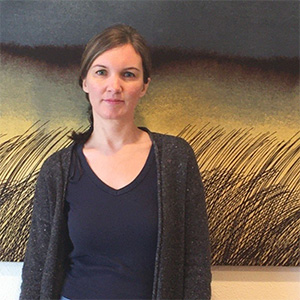IBM z/OS upgrade will deliver mainframe AI services and support
IBM has revealed further details about its imminent launch of a major z/OS upgrade, which will feature an infusion of AI. The operating system upgrade introduces AI support via a feature package called “AI System Services for IBM z/OS.” According to the announcement letter, it will integrate with other foundational AI components delivered with z/OS 3.1 to provide customers “a straightforward configuration experience to speed up time to value.”
Finding skilled z/OS admins can be a slog for many companies, and the theme of simplifying the Big Iron management process is front and center in the upgrade announcement. In fact, IBM has explicitly designed the z/OS upgrade to reduce skill requirements. The company promises that tools like AI Framework for IBM z/OS will enable admins to use “prebuilt AI models and infused AI methods into operation without requiring users to have AI or data science skills.”
Users can also expect to see non-AI-related features like container extensions for RedHat OpenShift as well as Linux applications that support hybrid cloud applications. This will allow enterprises to “deploy and co-locate Linux-based applications together with core business workloads and enjoy the unique value propositions of both environments.”
With a planned launch date of September 29, 2023, IBM intends for this version of z/OS to be “the basis for an AI-infused, hybrid cloud operating system, and z/OS 3.1 will be the first release in that journey.”
Source: IBM
UK-based Legal & General signs Kyndryl for cloud migration
UK-based financial services company Legal & General (L&G) has signed a seven-year contract with Kyndryl, the IT service provider which was spun off from IBM in 2021. The partnership will accelerate L&G’s technology transformation agenda, which includes a major move to a new data center.
According to Kyndryl, the plan is to implement a new on-premises Microsoft Azure hybrid cloud platform from Dell powered by Azure Stack HCI, closely coupled with the zCloud mainframe. The combination should provide a low-latency solution that will ease future public cloud migrations.
L&G, which provides life insurance, pensions, and investment management services globally, has a relationship with Kyndryl that dates back several years. The renewed contract builds on “a strong one-team ethos to the program, underpinned by transparency and a great affinity to L&G’s unique culture and purpose,” says Mark Hall, group CTO at Legal & General.
“We see this as a strategic opportunity for Kyndryl and L&G to build on our partnership, leveraging Kyndryl’s deep expertise and experience in providing secure, compliant, and resilient compute, mainframe, and cloud transformation services, alongside their knowledge of Legal & General.”
The new data center also aligns with the company’s sustainability efforts, and “is planned to be powered by 100% renewable energy aligning with Kyndryl and L&G’s sustainability commitments,” said Faith Taylor, Vice President and Global Sustainability Officer, Kyndryl.
Source: Kyndryl
Flexibility key in Boston’s new IT strategic plan, says CIO
During a recent interview with Statescoop, Boston’s Chief Information Officer Santiago Garces talked about the city’s tech efforts, including the city’s five-year strategic plan.
Boston Mayor Michelle Wu appointed Garces in 2022, emphasizing that “technology is essential for delivering great city services—from closing the digital divide to streamlining City transactions and performing data analytics to improve our operations.”
Among the challenges facing CIOs like Garces is the difficulty of attracting and holding on to tech talent willing to work on legacy systems, a problem faced across much of the public sector. According to the National Association of State CIOs it has become increasingly difficult to recruit and retain workers for a variety of reasons.
These reasons probably include the hesitancy of many public sector employers to create space for remote work. But according to Garces, they also include a habit of employing outdated or uninspiring job titles and descriptions that fail to make the public sector appealing to younger workers entering the labor market:
“If we’re hiring for product managers and user experience researchers, as opposed to like mainframe operators — we no longer have a mainframe and operation department,” Garces said. “There’s nothing wrong with that skill set, but the more that we’re aligning where more people are trying to find jobs, the easier it is for us to attract and retain, the lower the time that we have vacancies.”
Boston’s five-year plan also includes automation and generative AI, which Garces said will help expedite several processes, such as cybersecurity, software development, and data analytics. He sees these evolving technologies as helping build a responsive government that better serves the city of Boston:
“I think that there’s a genuine opportunity that as we engage in the building and management of some of these government systems, that we also are finding opportunities to create community,” Garces said.
Source: Statescoop



0 Comments